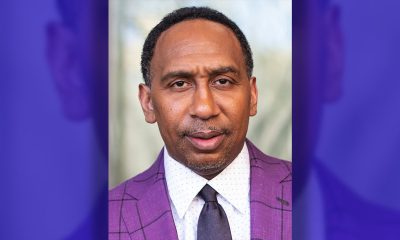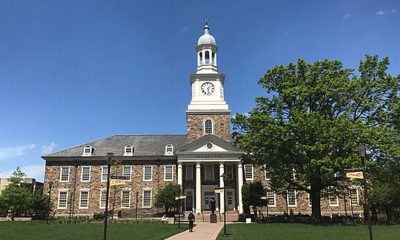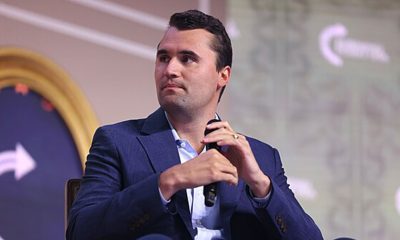Activism
COMMENTARY: Highland Park Is a Tragedy, But So Is Akron, Ohio, And Jayland Walker.
The eight officers were placed on administrative leave. And last weekend hundreds protested in downtown Akron. We just didn’t see much coverage on it. It would have only reinforced what we know—that police violence, specifically toward the BIPOC community is real and keeps happening again and again.
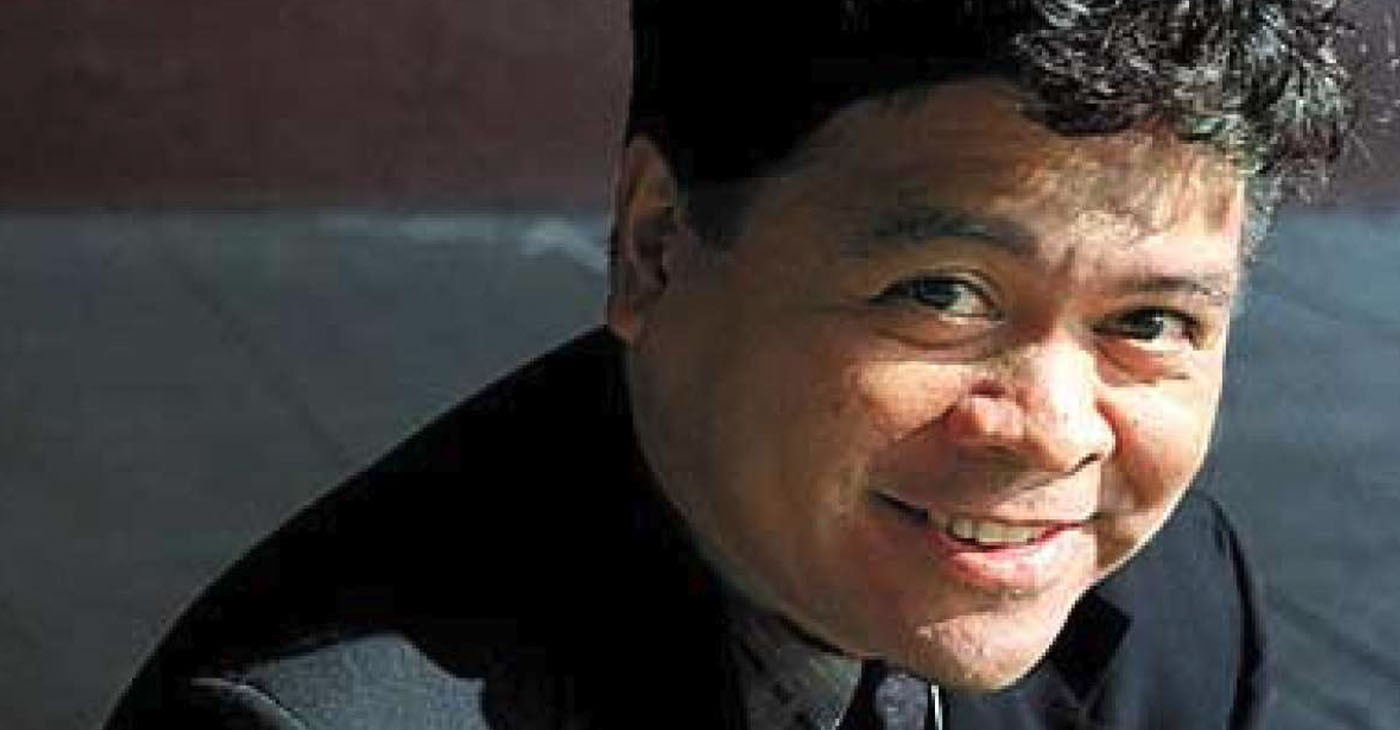
By Emil Guillermo
If you were celebrating on the Fourth of July, you have to be troubled on the fifth, sixth, seventh, and all the rest of our days.
This past weekend, some of our fellow Americans were flinching from gunpowder blasts. And it’s not from the fireworks.
It’s from guns. And it’s a reminder that our freedoms just don’t seem to be working right now for all of us in America.
We may have to think seriously about giving up some rights for the greater good.
It surely can’t go on much longer the way it is.
Not when seven are dead and more than 30 are injured when a gunman shot up a Fourth of July parade in Highland Park, Ill.
Not when the police chief of Akron, Ohio, finally released officers’ body camera videos of the killing of Jayland Walker on Sunday, nearly a week after Akron cops put more than 60 gunshot wounds into an unarmed Walker.
The Sunday release of the body-cam footage and the NAACP-led protest that occurred over the holiday in Akron would have led the national news most weekends.
But not when you have a live shooting at a Fourth of July parade in a Chicago suburb considered one of the safest places in America.
If you don’t know Highland Park (population 30,177), it’s to Chicago what the Lamorinda area is to Oakland. Affluent ($147,067 plus median income), 80-90% white. As a “white flight” suburb, mass shootings aren’t supposed to happen there.
So, when it does, the media get super-focused on Highland Park.
Meanwhile, Akron barely got mentioned in the news. You need both instances together to give you the rich, full picture of America’s gun problem.
It’s not the same for everyone.
For people of color, we have to fear the bad guys and the good guys.
Surely, minority communities know the Highland Park kind of gun violence perpetrated by an alienated male with an AR-15 type weapon. The Black community felt the pain at the Tops Supermarket shooting in Buffalo where 10 people died in May. The Hispanic community suffered in Uvalde when 21 people were killed last month.
But then you have the kind of shooting that took Jayland Walker’s life.
Reports say Walker had a handgun on a seat in his car. It wasn’t loaded. And he didn’t use it. Walker was stopped by the Akron police during a routine traffic stop. He had one traffic ticket and no criminal record. So why did it take eight officers to stop him, ending in a seven-minute pursuit that left Walker dead?
At one point, Walker stopped, exited his car wearing a ski mask, and fled on foot. Police used tasers at first, but when that didn’t stop Walker, the officers opened fire.
Akron Chief Stephen L. Mylett confirmed Walker was unarmed when confronted and told the lawyers for Walker that evidence he’d seen, indicated the officers were not threatened.
The eight officers were placed on administrative leave. And last weekend hundreds protested in downtown Akron. We just didn’t see much coverage on it. It would have only reinforced what we know—that police violence, specifically toward the BIPOC community is real and keeps happening again and again.
Who knows if Jayland Walker and his family will ever see justice? We only know for sure that Walker won’t be the last Black man who dies by police violence.
That’s why we need to keep shining a light on Walker’s case, so that in a year people won’t wonder, “Jayland Who?”
Emil Guillermo is a veteran journalist and commentator. See his work on www.amok.com
Activism
Oakland Post: Week of November 26 – December 2, 2025
The printed Weekly Edition of the Oakland Post: Week of November 26 – December 2, 2025

To enlarge your view of this issue, use the slider, magnifying glass icon or full page icon in the lower right corner of the browser window.
Activism
Oakland Post: Week of November 19 – 25, 2025
The printed Weekly Edition of the Oakland Post: Week of November 19 – 25, 2025

To enlarge your view of this issue, use the slider, magnifying glass icon or full page icon in the lower right corner of the browser window.
Activism
IN MEMORIAM: William ‘Bill’ Patterson, 94
Bill devoted his life to public service and education. In 1971, he became the founding director for the Peralta Community College Foundation, he also became an administrator for Oakland Parks and Recreation overseeing 23 recreation centers, the Oakland Zoo, Children’s Fairyland, Lake Merritt, and the Henry J. Kaiser Convention Center.

William “Bill” Patterson, 94, of Little Rock, Arkansas, passed away peacefully on October 21, 2025, at his home in Oakland, CA. He was born on May 19, 1931, to Marie Childress Patterson and William Benjamin Patterson in Little Rock, Arkansas. He graduated from Dunbar High School and traveled to Oakland, California, in 1948. William Patterson graduated from San Francisco State University, earning both graduate and undergraduate degrees. He married Euradell “Dell” Patterson in 1961. Bill lovingly took care of his wife, Dell, until she died in 2020.
Bill devoted his life to public service and education. In 1971, he became the founding director for the Peralta Community College Foundation, he also became an administrator for Oakland Parks and Recreation overseeing 23 recreation centers, the Oakland Zoo, Children’s Fairyland, Lake Merritt, and the Henry J. Kaiser Convention Center.
He served on the boards of Oakland’s Urban Strategies Council, the Oakland Public Ethics Commission, and the Oakland Workforce Development Board.
He was a three-term president of the Oakland branch of the NAACP.
Bill was initiated in the Gamma Alpha chapter of Kappa Alpha Psi Fraternity.
In 1997 Bill was appointed to the East Bay Utility District Board of Directors. William Patterson was the first African American Board President and served the board for 27 years.
Bill’s impact reached far beyond his various important and impactful positions.
Bill mentored politicians, athletes and young people. Among those he mentored and advised are legends Joe Morgan, Bill Russell, Frank Robinson, Curt Flood, and Lionel Wilson to name a few.
He is survived by his son, William David Patterson, and one sister, Sarah Ann Strickland, and a host of other family members and friends.
A celebration of life service will take place at Henry J. Kaiser Convention Center (Calvin Simmons Theater) on November 21, 2025, at 10 AM.
His services are being livestreamed at: https://www.facebook.com/events/1250167107131991/
In lieu of flowers, donations can be made to the Euradell and William Patterson scholarship fund TBA.

-

 Activism3 weeks ago
Activism3 weeks agoOakland Post: Week of November 12 – 18, 2025
-

 Activism4 weeks ago
Activism4 weeks agoOakland Post: Week of November 5 – 11, 2025
-

 Activism2 weeks ago
Activism2 weeks agoIN MEMORIAM: William ‘Bill’ Patterson, 94
-

 Activism3 weeks ago
Activism3 weeks agoHow Charles R. Drew University Navigated More Than $20 Million in Fed Cuts – Still Prioritizing Students and Community Health
-

 #NNPA BlackPress3 weeks ago
#NNPA BlackPress3 weeks agoThe Perfumed Hand of Hypocrisy: Trump Hosted Former Terror Suspect While America Condemns a Muslim Mayor
-

 #NNPA BlackPress3 weeks ago
#NNPA BlackPress3 weeks agoProtecting Pedophiles: The GOP’s Warped Crusade Against Its Own Lies
-

 Bay Area3 weeks ago
Bay Area3 weeks agoNo Justice in the Justice System
-
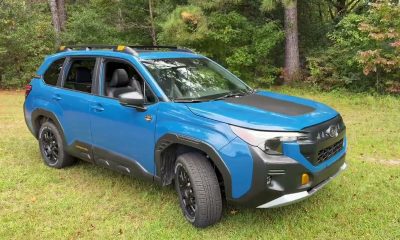
 #NNPA BlackPress4 weeks ago
#NNPA BlackPress4 weeks ago2026 Subaru Forester Wilderness Review: Everyday SUV With Extra Confidence



